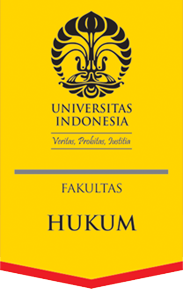DOI
10.21143/jhp.vol49.no2.2003
Abstract
The existence of free will is required to legitimize criminal responsibility both legally and morally. Criminal responsibility, which was constructed through the concepts of actus reus and mens rea (cartesian-dualism) has been questioned by causal-determinism. As through these concepts moral responsibility and criminal practices, philosophically, are legitimized. Determinism, as a comprehensive worldview, closes the possibility of free will's existence. Contemporary science's findings in the fields of genetics, psychology, and neuroscience are increasingly verifying the determinism's thesis, rather than falsifying it. The law's concept embraces folk-psychology in which every actions are weighed ethically even by those who believe in causal-determinism. The concept of responsibility and punishment is the social practice required by society for the sake of order, utility and legal certainty. The objective of punishment is not only based on the retributive justice's concept, but also hold the utility principle that is consequentialist; Punishment creates deterrent effect and order.
Bahasa Abstract
Eksistensi kehendak bebas (free will) diperlukan guna melegitimasi secara legal maupun moral pemberian tanggung jawab pidana. Pertanggungjawaban pidana, yang dikonstruksi melalui konsep actus reus dan mens rea, kini mulai dipertanyakan relevansinya oleh pandangan determinisme-kausal karena melalui konsep-konsep itulah pertanggungjawaban moral dan praktik pemidanaan, secara filosofis, dilegitimasi. Determinisme, sebagai suatu pandangan dunia (worldview) yang total, justru menutup ruang bagi eksistensi kehendak bebas. Temuan sains kontemporer dalam bidang genetika, psikologi, dan neurosains kian memverifikasi tesis determinisme, alih-alih memfalsifikasi. Konsep hukum mencerap psikologi-rakyat (folk-psychology) di mana segala perbuatan ditimbang secara etis bahkan oleh orang yang meyakini determinisme-kausal sekalipun. Konsep tanggungjawab dan pemidanaan adalah praktik sosial yang dibutuhkan oleh masyarakat demi ketertiban, kemanfaatan dan kepastian hukum. Tujuan penghukuman tidak hanya beralaskan konsep keadilan retributif, tetapi juga berdasarkan asas kemanfaatan (utility) yang bersifat konsekuensialis, dalam arti, hukuman lebih dimaksudkan untuk menghindari potensi terulangnya kejahatan serupa, sehingga menciptakan ketertiban
References
Adam J. Kolber, ”Free Will as a Matter of Law", in Dennis Patterson and Michael S. Pardo, Introduction to Philosophical Foundations of Law and Neuroscience, Oxford: Oxford University Press, 2016 Andi Hamzah, Asas-Asas Hukum Pidana, Rineka Cipta, Jakarta, 1997 Andrew Ashworth, Principles of Criminal Law, 5th edition, Oxford: Oxford University Press, 2006 Anthon F. Susanto, Ilmu Hukum Non Sistematik: Fondasi Filsafat Pengembangan Ilmu Hukum Indonesia, Yogyakarta: Genta Publishing, 2010 David Eagleman, "The Brain on Trial", 2011, , diakses tanggal 5 September 2018 David Hodgson, "Quantum Physics, Consciousness, and Free Will", in Robert Kane et. al, The Oxford Handbook Of Free Will, 2nd Edition, Oxford: Oxford University Press, 2011 F. Budi Hardiman, Melampaui Positivisme dan Modernitas: Diskursus Filosofis tentang Metode Ilmiah dan Problem Modernitas, Yogyakarta: Kanisius, 2003 Hanafi Amrani dan Mahrus Ali, Sistem Pertanggungjawaban Pidana; Perkembangan dan Penerapan, Jakarta: Raja Grafindo Persada, 2015 Herman A. Witkin et. al, "Criminality in XYY and XXY Men", in Matthew Jones, "Overcoming The Myth Of Free Will In Criminal Law: The True Impact Of The Genetic Revolution", Duke Law Journal, 2003 H.L.A Hart, Punishment And Responsibility, New York: Oxford University Press, 2008 John T. Fitzgerald, "The Stoics and the Early Christians on the Treatment of Slaves", in Tuomas Rasimus et. al, Stoicism In Early Christianity, Grand Rapids: Baker Academic, 2010 J. Angelo Corlett, Responsibility and Punishment, Springer: San Diego, 2013 Kejahatan dan Hukuman, Syahrul Fauzul Kabir 297 J. G. Moore, "Criminal Responsibility and Causal Determinism", Washington University Jurisprudence Review, Vol.9, 2016 Joshua Greene and Jonathan Cohen, "For the Law, Neuroscience Changes Nothing and Everything", The Royal Society, 2004 Kelik Wardiono, "Paradigma Profetik dalam Ilmu Hukum sebagai Pembaharuan Basis Epistemologi dari Ilmu Hukum di Indonesia", Universitas Muhammadiyah Surakarta, Disertasi, 2012 Mark A. Michael, "Utilitarianism and Retributivism: What's the difference?", American Philosophical Quarterly, Vol. 29, 1992 Martin Heisenberg, "Is Free Will an Illusion?", Nature, Vol. 459, Macmillan Publishers, 2009 Meynen O. G dan Oei T. I, "Free Will and Criminal Responsibility", in M. Herzog-Evans et. al, Transnational Criminology Manual, Volume 1, Nijmegen: Wolf Legal Publishers, 2010 Michio Kaku, "Why Physics Ends the Free Will Debate", 2011, , diakses tanggal 5 September 2018 Oliver Wendell Homes Sr, The Complete Writings Of Oliver Wendell Holmes, Boston: Houghton Mifflin, 1891 Peter Van Inwagen, An Essay on Free Will, Oxford: Clarendon Press, 1983 Putusan Mahkamah Agung Amerika Serikat Powell v. State of Tex, Nomor 392 U.S. 514, 536, 1968 Putusan Mahkamah Agung Amerika Serikat Morissette v. United States, Nomor 342 U.S. 246, 250, 1952 Putusan Mahkamah Agung Amerika Serikat United States v. Grayson, Nomor 438 U.S. 41, 1978 Robert Kane, "Libertarianism", in John Martin Fischer et.al, Four Views on Free Will, Blackwell Publishing, 2007 Ron Rattner, "Einstein Mystical Views & Quotations on Free Will or Determinism" , diakses tanggal 5 September 2018 298 Jurnal Hukum & Pembangunan Tahun ke-49 No.2 April-Juni 2019 Victor Stenger, "Free Will Is an Illusion", 2012, , diakses tanggal 5 September 2018
Recommended Citation
Kabir, Syahrul Fauzul
(2019)
"KEJAHATAN DAN HUKUMAN: TANTANGAN FILOSOFIS DETERMINISME-KAUSAL TERHADAP PERTANGGUNGJAWABAN,"
Jurnal Hukum & Pembangunan: Vol. 49:
No.
2, Article 4.
DOI: 10.21143/jhp.vol49.no2.2003
Available at:
https://scholarhub.ui.ac.id/jhp/vol49/iss2/4

